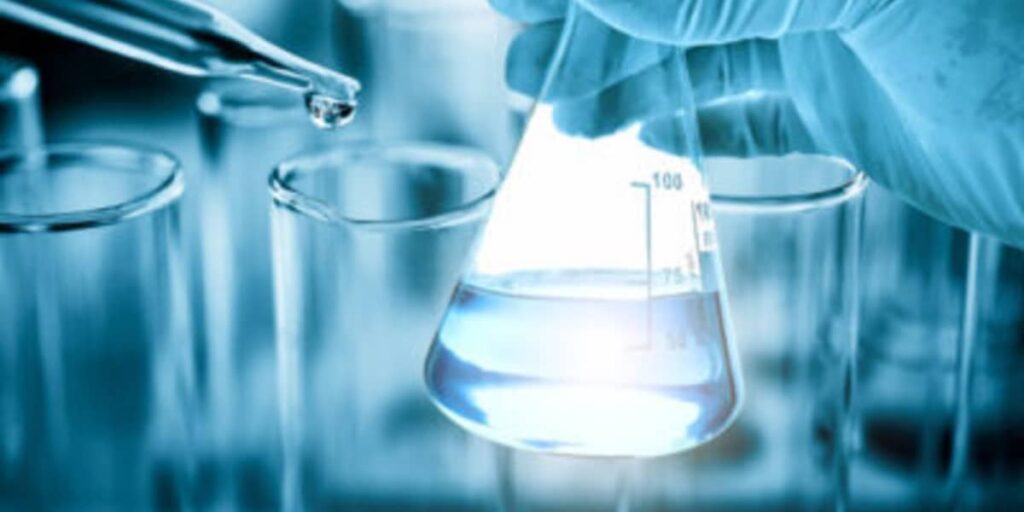As a seasoned water quality expert, I’m here to shed some light on the eternal “Deionized vs Distilled Water” debate. These are two prominent forms of purified water, both fulfilling the criteria of having a total dissolved solids content of 10 parts per million (ppm) or less. However, they each have unique characteristics that distinguish them from each other.
Table Of Contents
−This comprehensive guide will help you understand these differences when to use each type and their health implications.

Understanding Deionized Water
Deionized water, sometimes referred to as DI water, is often required when you need laboratory-grade water for medical procedures, food safety work, or lab testing. This type of water has had all ions removed, rendering it devoid of any charge, either positive or negative.
The process of deionization involves water being passed through a specific resin charged to attract all of the water’s molecules. Instead of the ions being removed, hydrogen and hydroxyl molecules are exchanged. However, it’s important to note that while deionization removes all ions from water, it does not filter it. This means that particulates, bacteria, and chemicals will remain after the treatment.
Due to its nature, deionized water readily absorbs substances it comes into contact with, including potentially harmful compounds. For example, if transported through pipes, it can pick up metals. Since regular water contains minerals that prevent hazardous compounds from accumulating, deionized water, lacking these minerals, can easily pick up toxins from any source.
Deionized water usage:
- Cleaning electronic devices
- Cooling systems, such as ones used for laser welding
- A/C fire extinguishers
- Immersion cooling applications
- Automotive applications
- Electrical Discharge Machining
- Pharmaceuticals
- The beverage industry
- Cosmetic products
- Liquid detergents
- Biochemistry applications
Risks Associated with Deionized Water
Deionized water should not be consumed. It lacks minerals or salts and is corrosive to your teeth’s enamel and delicate tissue. One of the primary dangers associated with deionized water is its ability to absorb the ions in your body when you drink it, potentially depriving your tissues of essential minerals like magnesium and calcium.
A Deep Dive into Distilled Water
Distilled water is another form of purified water that has been boiled and collected as steam. In this process, all contaminants such as bacteria, silt, and protozoa are left behind when water is turned into steam. The condensed steam then passes through a carbon postfilter, the final filtering stage, which captures any contaminants that have boiled away with the water.
Distilled water is free from almost all pollutants and minerals. Despite this high level of purity, it does contain ions that can be eliminated during deionization.
Distilled water usage:
- Medical equipment like CPAP machines and humidifiers
- Ironing clothes
- Car maintenance
- Aquariums
- Watering houseplants
Health Implications of Drinking Distilled Water
The primary dangers of consuming only distilled water are a lack of dissolved minerals like magnesium and calcium. Although distilled water does not deplete your body of ions as deionized water does, it does not supply essential minerals either, potentially affecting your overall mineral balance.
Deionized vs Distilled Water: Choosing the Right One
Deionized water, being ultra-pure and devoid of any charge, is the best choice for laboratory experiments, cleaning industrial gear, and other applications requiring highly purified water. However, it often needs to be treated by means other than deionization to be effective in most cases.
On the other hand, distilled water, though not as pure as deionized water, is safer for drinking. However, it’s important to note that it still isn’t the best drinking water due to its lack of essential minerals.
What Gets Removed in Each Process?
Both distilled and deionized water is extremely pure, but the purification level depends on the cleanliness of the initial water. The deionization process removes ions – charged non-organic particles – from water, whereas distillation removes nearly all minerals, many chemicals, and the majority of germs. However, neither process can guarantee the complete removal of all contaminants, especially volatile organics, and other pollutants.
Comparing Costs: Deionized vs Distilled Water
When extreme purity isn’t necessary, many people compare the costs of deionized and distilled water. Distillation can be a lengthy process, requiring heating, cooling, and collection of water, while deionization is typically faster and only needs energy for operation monitoring and water transportation.
Conclusion
While they may sound similar, distilled and deionized water are distinct entities. Deionized water, though pure, isn’t safe for drinking due to its potential to deplete your body of essential ions. On the other hand, distilled water, while safer for consumption, doesn’t supply essential minerals, limiting its benefits. Both types, however, are valuable for laboratory work and specific applications requiring highly purified water. As always, it’s crucial to understand your specific needs and consult with a professional before making a decision.

Jay
Jay is a health and wellness enthusiast with expertise in water quality and nutrition. As a knowledgeable advocate for holistic well-being, Jay successfully manages Type 2 Diabetes through informed lifestyle choices. Committed to sharing reliable and authoritative insights, Jay combines firsthand experience with a passion for enhancing health."
